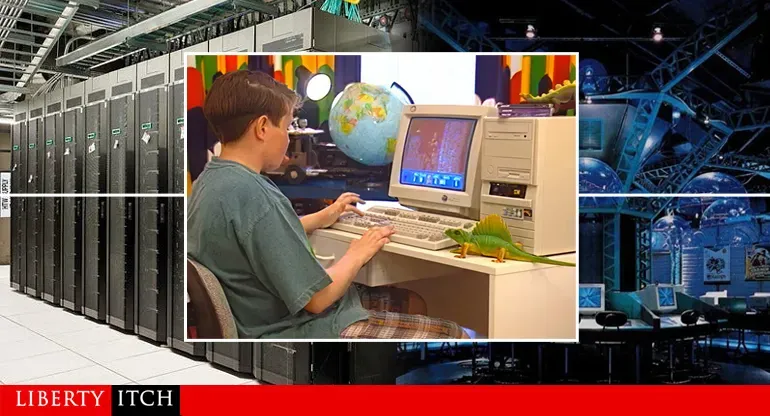Table of Contents
John Klar
Liberty Nation News
San Francisco has deteriorated steadily under progressive policies that have seeded overdoses, homelessness, an exponential increase in crime, and plummeting housing prices. In the midst of San Fran’s Mad Max despair, innovator Zoox is planning to launch a fleet of shiny EV robotaxis to ferry citizens around the City by the Bay. The contrast between urban decay and technological rebirth reflects the prospects for EV robocabs: Are they a novel advance, or a doomed techno-fantasy?
The Evolution of Robotaxis
The dream of ever-available cheap transport in robotaxis has long enthralled the human imagination. Isaac Asimov popularized the concept in his iconic sci-fi novel I, Robot. Artificial Intelligence is required to operate these vehicles, displayed in comical if near-prophetic Hollywood by the animated “Johnny Cab” driver in the blockbuster Total Recall. The AI robotaxi industry is dominated by three companies: Cruise and Waymo, which have designed AI technology to adopt traditional gas-powered cars for passenger pick-up, and San Francisco’s Zoox, whose unique box-like EV robotic cab resembles a Ridley Scott movie prop.
There is an understandable appeal to the idea of drivers incapable of intoxication or human error behind the wheel of Zoox’s robotaxis. AI driving with multiple modern sensors and real-time interaction with data and maps promises to eliminate road rage, distracted driving, poor eyesight, and other human weaknesses. The goal of the perfect driver on call 24/7 in cheap, quiet, convenient cars echoes Asimov’s observation in I, Robot: “You just can’t differentiate between a robot and the very best of humans.”
Is Human Safety at Robotic Risk?
Unfortunately, the high hopes of a safer, easier world have proven elusive for all three manufacturers of robotaxis. Hundreds of accidents with prototypes have attracted investigations. The National Highway Traffic Safety Administration (NHTSA) recently announced interest in two rear-end collisions involving Zoox vehicles and 31 incidents relating to Waymo robotaxis. These inquiries join a 2023 examination of GM’s Cruise, one of whose cars hit a jaywalking pedestrian in San Francisco.
Should robotaxis prove technologically viable without presenting undue safety risks, their deployment in larger cities may seed discontent among taxi unions at risk of losing revenue. Ironically, Uber drivers who displaced traditional Yellow Taxi queues may themselves be fodder for robo-drivers who are paid no wage and never sleep, get sick, or complain.
Billions of dollars of investments in synthetic meats have not ensured that technology will become widely viable; EVs and solar panels still face profound hurdles relating to resourcing, grid capacity, and end-of-life disposal. The persistent safety threats demonstrated during the current period of private experimentation with sketchy inventions on public roads may similarly prove an insurmountable obstacle for the robotaxi visionaries.
Future Bumps in the Road
It has been suggested that Zoox, a subsidiary of Amazon, may ultimately be used to develop driverless vehicles, not as robotaxis, but as shipping vehicles to displace highly compensated human operators in the efficient delivery of Amazon goods. If the vehicles prove safe, this development could lower shipping costs for consumers while infuriating drivers’ unions.
Yet even if these nifty rigs prove safe and effective, young commuters are more likely to trust them than old (as with EVs), and they will still appear incongruous in cities that continue to deteriorate under a declining economy, rampant crime and drug use, and rising homelessness. Zoox might wish to ensure future robotaxis are equipped with bullet-proof glass to protect against robocarjackings and Narcan for addicts.









